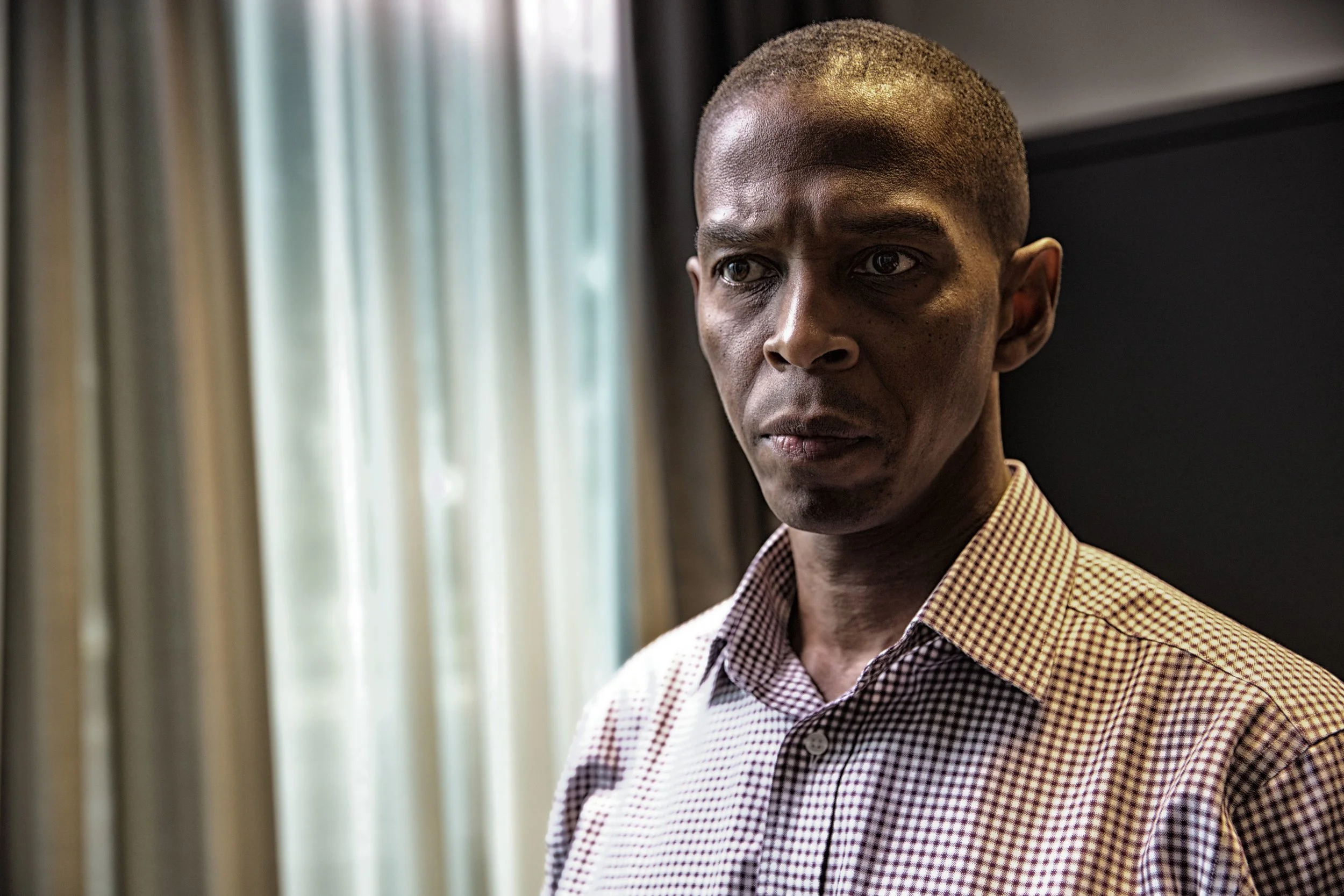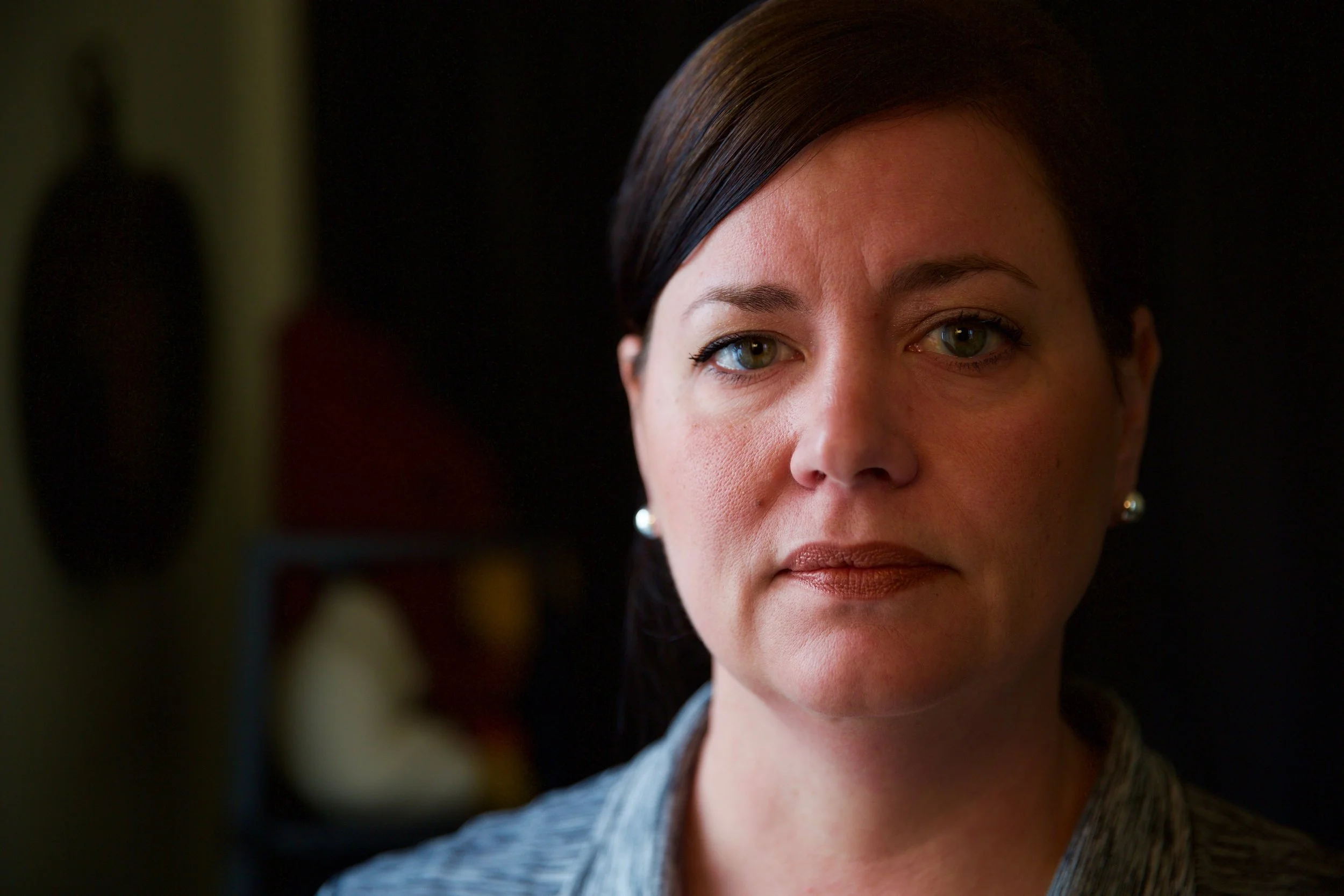Richmond Justice
STORIES + PORTRAITS
Mike | October 21, 2016
Mike Herring is the Commonwealth's Attorney for the City of Richmond. Since his first election in 2005, he has prosecuted felony crimes on behalf of the Commonwealth of Virginia and managed a team of fellow prosecutors based in downtown Richmond.
I didn’t go to law school to be a criminal lawyer. And I certainly didn’t go to law school thinking I’d be a prosecutor. I went to school in the late 1980s thinking I would end up in a corporate practice. I was originally drawn to prosecution because I wanted trial experience—not because I saw a need for somebody like me.
I joined the Commonwealth Attorney’s office when I was 26 or 27. Crack was rampant, and I wanted to maximize felony convictions. But by the time I left in 1996, I was burned-out, partly because I had prosecuted so many drug cases and was beginning to realize that our approach to the drug war was ineffective.
“I’m years away from it now, but my work in criminal defense still informs my thought process.”
For the next nine years, I worked on criminal defense. It broadened and balanced my perspective. Sometimes, people on the wrong side of the justice system are there because of choices—semi-calculated decisions that result in bad outcomes. But equally as often, people find themselves before the courts because of circumstances over which they enjoy virtually no control. As a young prosecutor, I moved through cases in a rote fashion. I almost dehumanized defendants and prosecuted them as case files. As a defense lawyer, I learned that you have to have a sense of the person’s story in order to build an adequate defense. I’m years away from it now, but my work in criminal defense still informs my thought process.
You don’t have to do an in-depth analysis of our state’s or our city’s response to narcotics to see limitations in what the law offers. In Virginia, for example, you can be convicted of possession of cocaine and enjoy first-offender status: You avail yourself of treatment, and you avoid a conviction. Here’s the problem: If you are a hardcore user, the single second chance that the law gives you could be insufficient. The science tells us that the number of relapses you should expect from an addict is six or seven—not one. The law imposes an expectation that people who have been unable to control impulses and stay away from substances will, miraculously, enjoy restraint, simply because they’ve been charged with a felony. But the threat of prosecution and the threat of arrest is not a part of the calculus of a drug addict, and probably not even of a drug user.
If we really are going to do something more than pay lip service to the idea that detention for drug users is ineffective, then you’re going to have to accept the reality that during the period after you have interdicted them, they are going to continue to use. The key question is, are they going to commit acts of violence—acts of harm to the community? If the answer to that is, “No,” then you should accommodate them while they continue to use on the chance that, over time, they get control over it. You avoid the cost of detention. You avoid the downsides associated with felony convictions. And it’s cheaper—much, much cheaper.
In Virginia, you have to work toward these goals very carefully. If you try to apply too broad a brush in a state where drug diversion is not codified, then folks at the state policy level may say, “Wait a minute—what you’re trying to do in Richmond really doesn't comport with the spirit of the law.” You find yourself running into headwinds. As a result, there’s a disincentive to make noise about it. But in an effort to keep it under wraps, you may never take it to scale. So, you try things in precincts, you try things in neighborhoods. In a city like Richmond where there is real community policing, you can test just about anything non-traditional with regard to law enforcement. If you’re lucky, you find a few council people who are receptive and willing to champion the idea, and then you try to get little bits of funding in place to launch pilots.
“It’s one thing to talk about alternatives, and something altogether different to fund them.”
I wouldn’t want to be the CA of any other jurisdiction in the state. Richmonders are at least willing to entertain non-traditional approaches to criminal justice. They appreciate that not everybody should be punished and not everyone should be detained. But one of the disappointing things about Richmond, notwithstanding our receptivity to alternatives, is the inability to put these ideas into action and take them to scale. It’s one thing to talk about alternatives, and something altogether different to fund them.
I hope that my legacy will be forcing the issue around forgotten felons. I'm talking about people who get prosecuted for grand larceny—a felony, rather than a misdemeanor—after stealing something valued at $200 or more. Despite inflation, that threshold hasn’t changed in generations. There are others who get prosecuted for cocaine residue as a result of drug addiction problems. And there’s a reflex to impose bail on folks simply because we’ve always done so, even though there may be nothing empirical to suggest that a particular individual poses a threat to the community while awaiting trial. Most of the people we’ve convicted for felonies, we will see again—not because they’re inherently bad, as we've told ourselves, but because of the consequences of the felony in terms of difficulties in securing stable housing, employment, and recovery. Forgotten felons come back again and again.
To take the chance of re-allocating seven figures from detention to diversion, for people who have broken the law—it’s risky, right? But the potential upside on diversion eclipses the yield that you get from incarceration. And you might preserve a person’s capacity to be a productive, non-felon citizen. The more strategic cities have aligned with the private sector to implement alternatives to incarceration. That may be the most fertile ground.
— interviewed October 5, 2016
















